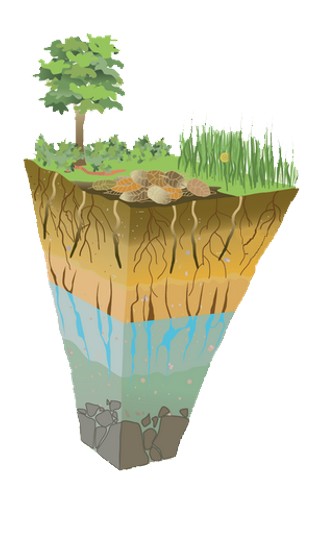
The course aims to provide basic knowledge on the Earth Critical Zone (ECZ). The student will acquire knowledge on the ECZ formation factors, on the processes, on the chemical, physical and morphological properties of soils and ECZ and on soil classification. The student will acquire knowledge on the main types of soil and on the degradation processes of the soil and ECZ; furthermore, hints will be made on the spatial and applied study of the ECZ.
In consideration of the above, the student will acquire theory and tools required for the sustainable management of the ECZ with a specific focus on the agricultural, forestry and environmental sectors.
Introduction: The Earth Critical Zone (ECZ) as a natural entity: definitions, multi-scale and transdisciplinary approach
The formation factors of the ECZ
Soil insights: pedogenesis, Jenny's model, parent material, climate, organisms, geomorphology and time as a factor in soil formation and examples of biosequences.
The processes of the ECZ: decarbonation, leaching, podzolization, ferrallitization, salinization, alkalization, gleyization
The chemical, physical and biological properties of the ECZ and their relationships: structure, porosity, air and water in the soil, temperature, colour, chemical and biological parameters.
The ECZ in the field: soil profile, horizons and morphological properties
Soil classification: WRB, USDA, Diagnostic horizons.
The main soil types and their importance with respect to the ECZ
Notes on soil and ECZ mapping
The degradation processes of the ECZ (LDN, SDG15)
Susainable planning and management of the ECZ: from classical approaches to innovative tools
The policy of the ECZ: potential and limits in the Italian and European scenario.
Applications based on the acquired knowledge will be made possible thanks to various practicals. They aim to make the student skilled in the soil morphological field analysis and lab analysis and the ECZ with a specific focus towards forest and agricultural landscape and the use of IT tools to improve ECZ sustainable management.
The student will be stimulated to acquire a critical vision of the proposed topics in order to develop the independence of judgment necessary to be able to compare and interact positively with others, especially in work contexts.
- Docente: Fabio Terribile
- Docente: FRANCESCO ZUCCA